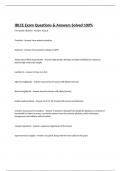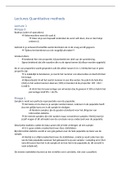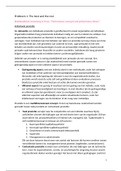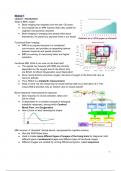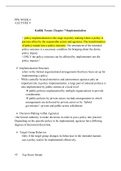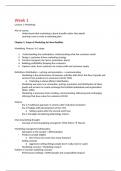Lecture 1
Business science and business ethics
- Business Science focuses on organizations:
o Organizations as agents
o Organizations as environments
- Both perspectives elicit fundamental ethical questions, e.g.:
o If organizations are agents, their behaviour can be evaluated on ethical
grounds: which of their actions and decisions are ethically justifiable?
o If organizations are environments (i.e. structured groups of agents), then how
does the organizational structure affect the behaviour of the individual
agents within the organization and outside the organization from an ethical
perspective?
- Business Science focuses on markets:
o Markets as environments in which organizations operate
o Markets as coordination systems alternative to organizations
- Again, both perspectives elicit fundamental ethical questions, e.g.:
o If markets are environments in which organizations operate, how do
organizations balance their need to be competitive with their ethical
standing? And how should markets be regulated in a way that it is possible
for organizations to find a balance?
o If markets are alternative to organizations, then in which ways this difference
affects the forms of evaluations (including ethical evaluations) practised
within and outside organizations?
- Business Science focuses on markets in society:
o How markets affect society
o How society shapes markets
- Both perspectives elicit fundamental ethical questions, e.g.:
o To which extent current societal values are affected (or should be affected)
by “what is good for the markets”?
o To which extent should regulations on markets reflect societal values?
Theoretical bases for business ethics:
- Aristotle’s virtue ethics
- Kantian deontology
- Utilitarianism & Libertarianism
- Social contract theory & Rawls
- Communitarianism
Ethical decision-making
- The process of evaluating and choosing among alternatives in a way that is
consistent with ethical principles. This entails:
o Recognizing alternatives
o Recognizing stakeholders
o Recognizing consequences
- Decision-making processes are typically multi-dimensional



